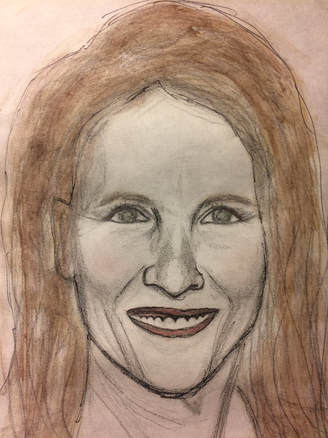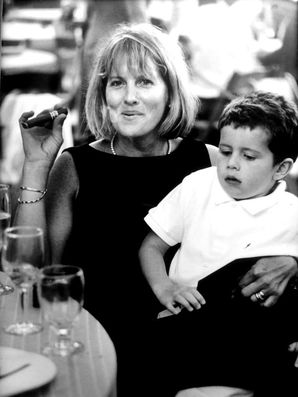 Margaret, the sixth of our story Margaret, the sixth of our story She doesn’t trust many people, but when she does they will know it. They will learn, perhaps the hard way, that a simple “I’m sorry” is not a part of her vernacular. Sure, she’s sorry you’re upset. She's sorry you're hurt. But ultimately, your feelings are not her fault. The blame is not hers. They will see something intense that draws most people further into her life and its many layers of multi-tasking. They’ll see her shimmy her shoulders in perfect time with the beat. They’ll see her care enough to compete. They’ll see her forgive, and truly forget, quite easily. And then they’ll realize, after some time, that they wouldn’t want to hear her say she’s sorry, anyways. It would be like watching a bubbly child go quiet after being asked to kindly shut up. Or like seeing a very sad friend feign happiness, just to appease another. Something would need to be stamped out of her to hear her say, "I'm sorry." And they wouldn't want that. Perhaps they’ll come to see that when we accept that our loved ones are not all alike (or not all like us), and that if they were, our lives would be boring, we begin to accept them for exactly who they are.  The ones who are pulled still further into her circle will see that as a result of, and not despite, her strength, she is a feeling creature. She’ll show them sadness, and it’ll be quite unnerving to hear her voice tremble or see her lip quiver, when she talks about the ones she’s lost. But emotions run both ways – someone so intense could not feel such joy without knowing true heartache. And so it will feel strangely right to see that sadness is in her nature. She will teach us that it need not make us weak. We can feel sorrow, and allow it to fill us, but not touch our strength. She is one of the boldest, and certainly the proudest, of her kind. She is Margaret, the sixth of The Great Danes.
0 Comments
Leave a Reply. |
Here you will find stories of strength, connection, and cause.
Archives
September 2017
Categories |
 RSS Feed
RSS Feed